VW Golf vs Porsche Cayman – Differences & prices compared
Compare performance, boot space, consumption and price in one view.
Find out now: which car is the better choice for you – VW Golf or Porsche Cayman?
The VW Golf (Hatchback) comes with a Petrol MHEV, Petrol, Plugin Hybrid or Diesel engine and Automatic or Manuel transmission. In comparison, the Porsche Cayman (Coupe) features a Petrol engine with Automatic transmission.
When it comes to boot capacity, the VW Golf offers 381 L, while the Porsche Cayman provides 184 L – depending on how much space you need. If you’re looking for more power, decide whether the 333 HP of the VW Golf or the 500 HP of the Porsche Cayman suits your needs better.
In terms of consumption, the values are 0.30 L per 100 km for the VW Golf, and 13 L for the Porsche Cayman.
Price-wise, the VW Golf starts at 25200 £, while the Porsche Cayman is available from 136000 £. Compare all the details and find out which model fits your lifestyle best!
VW Golf
Der VW Golf überzeugt seit Jahrzehnten durch seine Vielseitigkeit und seine ausgewogene Mischung aus Komfort und Dynamik. Mit seinem zeitlosen Design und der hochwertigen Verarbeitung ist er ein treuer Begleiter im Alltag. Besonders beliebt ist der Golf wegen seiner innovativen Technologie und der großen Auswahl an Varianten, die für jeden Bedarf das passende Modell bietet.
details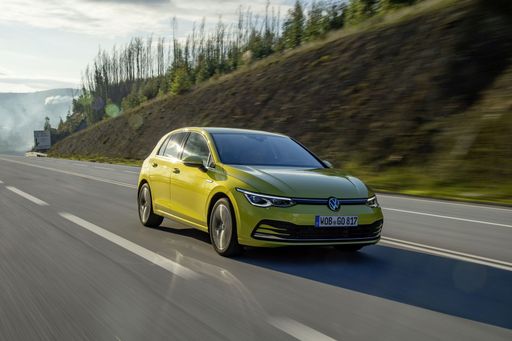 @ Volkswagen
@ Volkswagen
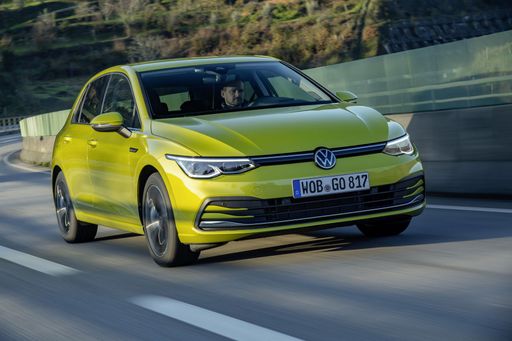 @ Volkswagen
@ Volkswagen
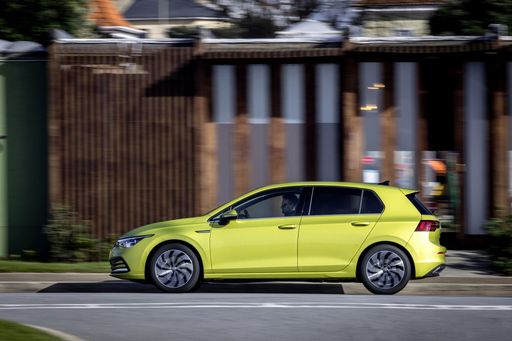 @ Volkswagen
@ Volkswagen
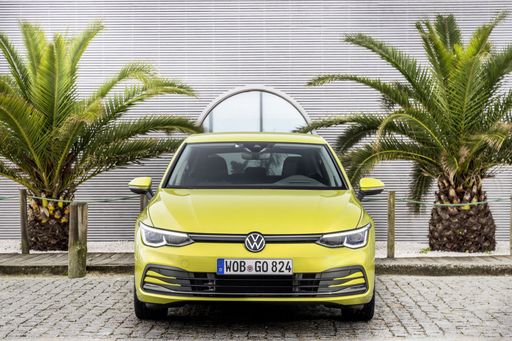 @ Volkswagen
@ Volkswagen
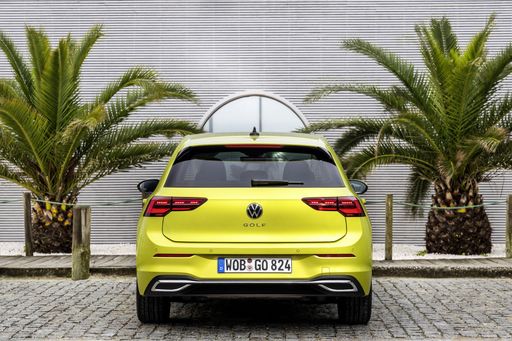 @ Volkswagen
@ Volkswagen
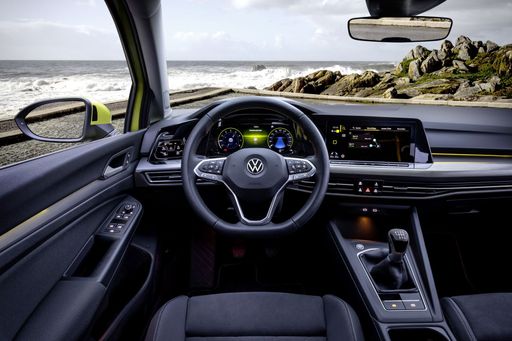 @ Volkswagen
@ Volkswagen
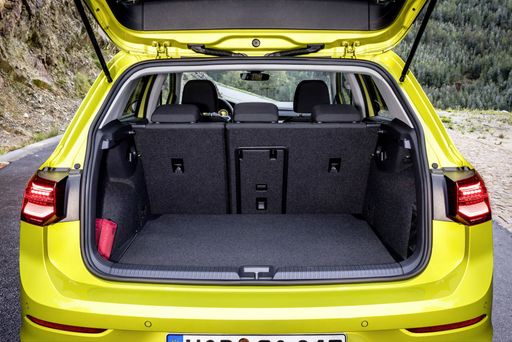 @ Volkswagen
@ Volkswagen
Porsche Cayman
The Porsche Cayman stands out as a quintessential sports car, blending sleek design with dynamic handling. Its mid-engine layout provides an excellent balance and sharp agility that driving enthusiasts crave. Inside, the Cayman offers a refined and driver-focused interior, ensuring that every journey is an exhilarating experience.
details

|
|
|
|
|
Costs and Consumption |
|
|---|---|
|
Price
25200 - 51600 £
|
Price
136000 £
|
|
Consumption L/100km
0.3 - 8.2 L
|
Consumption L/100km
13 L
|
|
Consumption kWh/100km
-
|
Consumption kWh/100km
-
|
|
Electric Range
131 - 143 km
|
Electric Range
-
|
|
Battery Capacity
19.70 kWh
|
Battery Capacity
-
|
|
co2
6 - 186 g/km
|
co2
295 g/km
|
|
Fuel tank capacity
40 - 55 L
|
Fuel tank capacity
54 L
|
Dimensions and Body |
|
|---|---|
|
Body Type
Hatchback
|
Body Type
Coupe
|
|
Seats
5
|
Seats
2
|
|
Doors
5
|
Doors
2
|
|
Curb weight
1307 - 1668 kg
|
Curb weight
1490 kg
|
|
Trunk capacity
273 - 381 L
|
Trunk capacity
184 L
|
|
Length
4282 - 4296 mm
|
Length
4456 mm
|
|
Width
1789 mm
|
Width
1822 mm
|
|
Height
1454 - 1483 mm
|
Height
1267 mm
|
|
Max trunk capacity
1129 - 1237 L
|
Max trunk capacity
272 L
|
|
Payload
431 - 508 kg
|
Payload
281 kg
|
Engine and Performance |
|
|---|---|
|
Engine Type
Petrol MHEV, Petrol, Plugin Hybrid, Diesel
|
Engine Type
Petrol
|
|
Transmission
Automatic, Manuel
|
Transmission
Automatic
|
|
Transmission Detail
Dual-Clutch Automatic, Manual Gearbox
|
Transmission Detail
Dual-Clutch Automatic
|
|
Drive Type
Front-Wheel Drive, All-Wheel Drive
|
Drive Type
Rear-Wheel Drive
|
|
Power HP
116 - 333 HP
|
Power HP
500 HP
|
|
Acceleration 0-100km/h
4.6 - 10.2 s
|
Acceleration 0-100km/h
3.40 s
|
|
Max Speed
202 - 270 km/h
|
Max Speed
315 km/h
|
|
Torque
220 - 420 Nm
|
Torque
450 Nm
|
|
Number of Cylinders
4
|
Number of Cylinders
6
|
|
Power kW
85 - 245 kW
|
Power kW
368 kW
|
|
Engine capacity
1498 - 1984 cm3
|
Engine capacity
3996 cm3
|
General |
|
|---|---|
|
Model Year
2024 - 2025
|
Model Year
2021
|
|
CO2 Efficiency Class
D, B, F, G, C
|
CO2 Efficiency Class
G
|
|
Brand
VW
|
Brand
Porsche
|
VW Golf
VW Golf: Ein Evergreen mit innovativer Technik
Seit Jahrzehnten gilt der Volkswagen Golf als der Inbegriff des zuverlässigen Kompaktwagens. Doch der neueste VW Golf zeigt sich nicht nur als bewährter Alltagsheld, sondern auch als Fortführer technologischer Innovationen. Ob Benzin, Diesel oder Hybrid – der Golf bietet für jede Präferenz die passende Antriebsform und bleibt dabei stets am Puls der Zeit.
Antriebsvarianten: Vielfalt für jeden Fahrertyp
Der VW Golf ist in einer beeindruckenden Bandbreite von Antriebsvarianten erhältlich, die von klassischen Benzinmotoren über effiziente Diesel-Aggregate bis hin zu modernen Hybrid-Antrieben reichen. Insbesondere die Mild-Hybrid und Plug-In-Hybrid Modelle stellen einen herausragenden Fortschritt in Sachen Kraftstoffeffizienz und CO2-Reduktion dar. Mit einem Verbrauch von nur 0,3 L/100 km bei den Plug-In-Hybrid Varianten und einer elektrischen Reichweite von bis zu 137 km setzt der Golf Maßstäbe in seiner Klasse.
Leistung und Effizienz
Das Leistungsspektrum des Golf erstreckt sich von effizienten 116 PS bis hin zu kraftvollen 333 PS im Golf R, der mit Allradantrieb und sportlicher Dynamik beeindruckt. Vielfältige Auswahlmöglichkeiten bei Getriebearten, von manuell bis zum modernen Doppelkupplungsgetriebe (DSG), bieten zusätzliche Flexibilität für unterschiedliche Fahrstile und Nutzungsszenarien.
Technologie und Innovation
Die neuesten Golf-Modelle sind mit fortschrittlicher Technologie ausgestattet, die Komfort und Sicherheit auf ein neues Niveau hebt. Das Interieur glänzt mit einem modernen Infotainmentsystem, umfassender Konnektivität und innovativen Fahrerassistenzsystemen. Das Head-up-Display, adaptive Fahrwerksregelung und die intelligente Verkehrszeichenerkennung sind nur einige der Features, die den Golf zu einem der technologisch führenden Fahrzeuge in seinem Segment machen.
Design und Funktionalität
Der VW Golf kombiniert bewährtes Design mit funktionalen Verbesserungen. Das sportliche, aber dennoch elegante Schrägheck bietet großzügigen Platz, wobei der Kofferraum zwischen 273 und 381 Litern zu bieten hat. Die ästhetische Linienführung bei zugleich optimaler Raumausnutzung verleihen dem VW Golf seine typisch zeitlose Eleganz.
Umweltbewusstsein und Nachhaltigkeit
In einer Zeit, in der der bewusste Umgang mit Ressourcen immer wichtiger wird, überzeugt der Golf mit einer hohen Effizienz und geringen Emissionen. Die verfügbaren CO2-Effizienzklassen von B bis G zeigen, dass der Golf auch in puncto Umweltverträglichkeit eine gute Wahl darstellt. Dank der Auswahl an ressourcenschonenden Antrieben trägt der Golf zur Reduzierung des ökologischen Fußabdrucks bei.
Fazit: Der VW Golf bleibt ein Bestseller
Mit stetiger Weiterentwicklung in Technik und Design bleibt der VW Golf ein Dauerbrenner auf dem Automobilmarkt. Seine Vielseitigkeit in Antriebsarten, gepaart mit modernem Komfort und zukunftsweisender Technologie, macht ihn zu einem Fahrzeug, das nicht nur treue Fans begeistert, sondern auch neue Kunden anspricht. Der Golf bleibt ein Symbol für Zuverlässigkeit und Innovation in einem sich stetig wandelnden Markt.
Porsche Cayman
The Porsche Cayman: A Masterclass in Precision Engineering
For decades, Porsche has been synonymous with precision, power, and unparalleled driving experience. The Porsche Cayman, particularly the newest iteration like the 718 Cayman GT4 RS, continues this legacy with a suite of cutting-edge technical features and exhilarating performance capabilities. Nestled in the sports car segment, this coupe has been engineered to provide an almost symbiotic relationship between car and driver.
Performance that Blazes a New Trail
The heart of the Cayman GT4 RS is a robust 4.0-liter naturally aspirated flat-six engine, pushing out an astounding 500 horsepower. This engine provides a visceral connection to the road, combined with a curiously addictive exhaust note that Porsche enthusiasts have come to love. With 450 Nm of torque, the acceleration feels unyielding, propelling the car from 0 to 100 km/h in a mere 3.4 seconds. Coupled with a PDK dual-clutch automatic transmission, each gear change feels precise and instantaneous, making it an exhilarating drive on both road and track.
Innovative Design Meets Functionality
The Porsche Cayman has always showcased a balance of aesthetic elegance and aerodynamic functionality. With a length of 4456 mm, width of 1822 mm, and a height of 1267 mm, the dimensions are tightly packed for optimal stability and agility. The coupe's 1490 kg curb weight contributes to its nimbleness, while the rear-wheel-drive configuration ensures a pure sports-car feel.
Efficiency Coupled with Performance
While performance is at the core of the Porsche ethos, efficiency hasn't been compromised. The Cayman GT4 RS has a fuel consumption rate of 13 L/100 km, striking an impressive balance between power and sustainability, although it maintains a CO2 efficiency class of G, indicative of its performance-oriented design.
Details that Make a Difference
Inside the cabin, the Cayman is fitted to perfection with a focus on the driver-centric experience. Despite its sporty DNA, it doesn't skimp on comfort—there's ample seating for two alongside a sizable trunk capacity of 184 liters, enhancing its practicality for weekend getaways.
Additionally, the car boasts a CO2 emission of 295 g/km and supports a payload of 281 kg, underscoring its utility without detracting from its core focus on high performance.
The Ultimate Driving Machine?
With a top speed of 315 km/h, the Cayman GT4 RS lives up to its billing as a track-bred sports car. The precision engineering, combined with innovative technological integrations, sets it apart from contemporaries in its class. While the sleek exterior exudes luxury, it's the engineering beneath that makes the Cayman an acme of what a modern sports coupe can achieve.
In the Porsche Cayman, enthusiasts meet a machine so finely tuned and so divinely balanced that it stands as a testament to the relentless pursuit of perfection—a masterpiece of modern automotive engineering.
What drive types are available for the VW Golf?
The VW Golf is offered with Front-Wheel Drive or All-Wheel Drive.
The prices and data displayed are estimates based on German list prices and may vary by country. This information is not legally binding.
